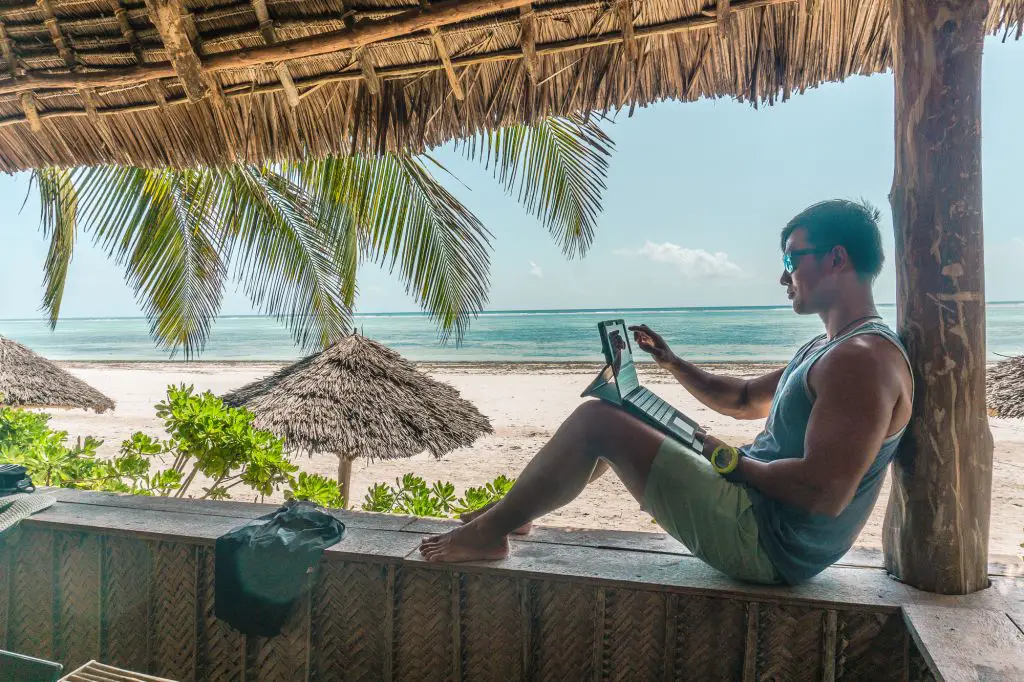Backpacking is an incredible way to explore the world on a budget, and it’s especially popular among students who are often looking for adventurous and cost-effective ways to travel. It provides an opportunity to immerse oneself in new cultures, meet people from all over the globe, and experience the beauty of nature up close. However, as exciting as it may be, backpacking also comes with its own set of challenges that one needs to be prepared for. This article aims to provide essential tips for students who are interested in backpacking, covering everything from planning the trip to staying safe and healthy on the road.

Backpacking is not just about traveling cheaply; it is also about embracing a minimalist lifestyle and being resourceful. It provides a sense of freedom as you carry all your essentials on your back and have the flexibility to make spontaneous decisions. For students who are on a break from their studies, it offers a perfect opportunity to step out of their comfort zones and explore the world.
This guide is designed to equip you for your upcoming adventure thoroughly. We’ll also delve into the crucial aspect of honoring nature and local traditions, alongside offering advice to enhance your travel experience. The cornerstone of a triumphant backpacking excursion is comprehensive preparation. Ensure all your academic assignments are completed — WritePaper will get your dissertation written for you — allowing you to focus entirely on orchestrating your journey.
Why Backpacking is Popular Among Students
Affordability is one of the major reasons why backpacking is so popular among students. In our minds vacation is always expensive, which makes traveling seem too distant for students who are often on a tight budget. Backpacking allows you to cut costs by staying in budget accommodations like camping grounds, cooking your own meals, and buying cheap flight tickets. It also encourages you to be more resourceful and find creative ways to save money, such as hitchhiking or volunteering in exchange for food and accommodation.
It also provides a sense of adventure and discovery that is often missing from traditional forms of travel. You have the freedom to explore off-the-beaten-path destinations, interact with locals, and experience the natural beauty of a region up close. Moreover, the unpredictable nature of backpacking often leads to unexpected encounters and memorable experiences.
Planning Your Backpacking Trip
Research
The first step to planning a backpacking trip is research. Gather as much info as you can about your destination including local customs and language. Also, consider safety issues, transportation, and other factors. Use online resources to learn about. You should also consider weather conditions, and when is the best time for you to travel to your destination.
Budgeting
Make a realistic budget that includes all expenses such as travel, accommodations, meals, entertainment, and an emergency fund. Always overestimate expenses to have extra cash for unexpected situations. Make a note about the ATM availability and exchange rate in your destination.
Packing
The key is to pack light, but make sure you have all the essential items you will need. Create a packing list and start with the most important items, such as your passport, money, and essential documents. Then, consider the climate of your destination and pack appropriate clothing. Remember to pack neutral items that can be matched with everything. Also, consider the weight and size of your backpack, as you will be carrying it around on your back.
Itinerary Planning
Have a rough itinerary in mind, but be open to changes and spontaneous decisions. Make a list of places you want to visit and activities you want to do, but don’t over-schedule yourself. Leave some room for relaxation and unexpected encounters. Also, consider the travel time between different locations and plan accordingly. Or simply visit other blogs and get inspiration like my two week South Africa itinerary.
Accommodation
Research various accommodation options available in your destination, including hostels, guesthouses, and Airbnb. Consider your budget and preferences while making a choice. Also, it is a good idea to book your accommodation in advance for the first few nights, especially if you are arriving late or during peak season.

Travel Insurance
It covers unexpected events such as cancellations of trips, medical emergencies and lost belongings. Be sure to carefully read your policy to know what’s covered. Consider the types of activities that you will be doing during your vacation and ensure they are covered under your plan.
Staying Safe and Healthy
Physical Fitness
It is crucial to be physically fit before starting your backpacking trip. Backpacking often involves long walks, hiking, and carrying a backpack for extended periods. Make sure to exercise regularly before your trip and build up your stamina by going to the gym. Also, consider the terrain of your destination and train accordingly. For example, if you plan to do a lot of hiking, make sure to include hill workouts in your training.
Hydration and Nutrition
Staying hydrated and well-nourished during your trip is essential. Carry a reusable water bottle and fill it up whenever you get a chance. In terms of nutrition, take with you lightweight and nutrient-dense foods such as nuts, dried fruits, and energy bars. Also, make an effort to eat balanced meals during your trip and include a variety of food groups.
First Aid
Carrying a basic first-aid kit and knowing how to use it is essential for any backpacking trip. Your first-aid kit should include these items:
- adhesive bandages,
- antiseptic wipes,
- adhesive tape,
- scissors,
- tweezers,
- pain relievers,
- any prescription medications you may need.
Also, consider taking a basic first-aid course before your trip to learn how to handle common medical emergencies.
Personal Safety
Your personal safety should be your top priority. You need to make sure to always be aware of your surroundings. Avoid risky situations and be cautious, especially at night. Also, make sure to inform someone close to you about your travel plans and check in with them regularly. Carry a whistle and a flashlight for emergencies, and consider carrying a personal safety alarm or pepper spray.
In addition to these tips, it is also essential to consider the specific health and safety risks of your destination. For example, some regions may have a higher risk of certain infectious diseases, and you may need to get vaccinated before your trip. In other places you run the risk of encountering dangerous local wildlife, so you need to be informed on how to act in the case of dangerous encounters. For example, if you are backpacking in a region with bears, make sure to store your food properly and carry bear spray.
Final Thoughts
Embarking on a backpacking journey can be a life-changing experience, but it also requires thorough preparation and a responsible attitude. From researching and budgeting to packing and staying safe on the road, there are various aspects to consider before setting off on your adventure. However, with the right mindset and preparation, backpacking can be an incredibly rewarding experience. Just like preparing for a backpacking trip, students also need to prepare for their academic assignments. If you are struggling with your academic work, consider seeking help from the best paper writing services to ensure you achieve success in your academic journey as well.
In conclusion, backpacking is a popular and rewarding way to travel, especially for students who are often on a budget and looking for adventure. By thoroughly preparing for your trip, staying safe and healthy on the road, respecting nature and local cultures, and maintaining a positive attitude, you can make the most of your backpacking journey and create memories that will last a lifetime. Remember, the world is yours to explore, so pack your bags, embrace the adventure, and enjoy the journey responsibly!





